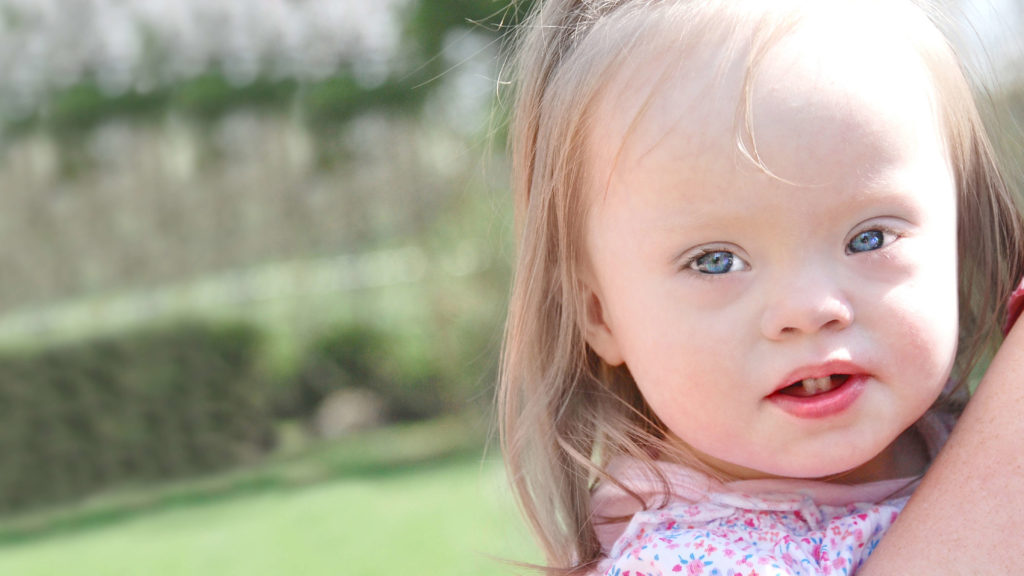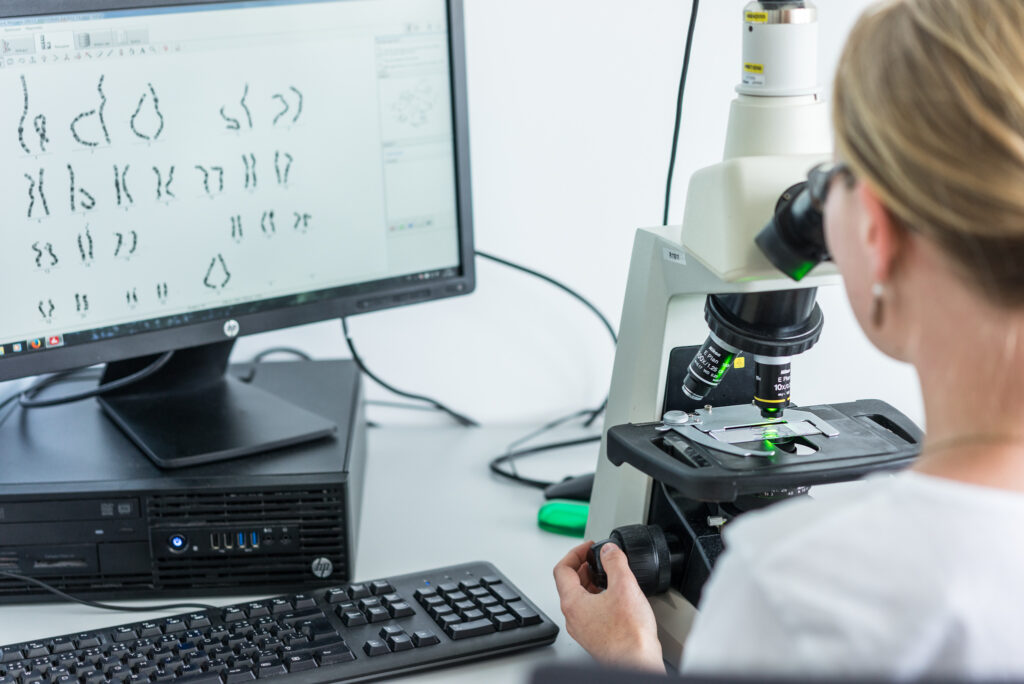What are human chromosomes and how many are there?
A karyotype is the complete set of chromosomes in a cell of an organism. The human karyotype contains 46 chromosomes, divided into 23 pairs. We always get one chromosome from our mother and one from our father. 22 pairs are made up of non-sex chromosomes (autosomes) and one pair is made up of sex chromosomes, which determine whether a person is male (XY) or female (XX).
What are autosomes and gonosomes?
An autosome, or asexual chromosome, is one of the chromosomes marked with numbers. There are 22 pairs of autosomes and one pair of sex chromosomes, called gonosomes, in every human cell (except eggs and sperm). Gonosomes, or sex chromosomes, are involved in determining sex. In humans, the sex chromosomes include the X chromosome and the Y chromosome, with the two X’s indicating a female and the XY indicating a male.
What are X and Y chromosomes?
X and Y chromosomes are sex chromosomes (gonosomes) that play a key role in sex determination and reproductive functions. They are different from other chromosomes (autosomes) that are involved in the inheritance of other characteristics not related to sex.
How do female and male chromosomes differ?
Female and male chromosomes differ mainly in their structure and function. Women have two X chromosomes. This chromosome is larger and contains more genes than the Y chromosome. It is the fact that women have two X chromosomes that allows them to carry the recessive genetic traits stored on the X chromosome without being affected themselves. The active gene on the second X chromosome can take over the function.
Males have one X and one Y chromosome (XY). The Y chromosome is much smaller than the X and contains fewer genes. It is responsible for determining male sex and includes genes that trigger the development of male sex organs and secondary sex characteristics such as a deeper voice or pubic hair. The Y chromosome also contains genes that are important for sperm production. Since men have only one X chromosome, any gene on this chromosome, whether dominant or recessive, will be expressed in men.
Why are chromosomes examined?
Determination of the human karyotype, i.e. determination of the chromosomal make-up of an individual, is the basic genetic examination that all clients at Repromeda undergo. Its aim is to rule out numerical or shape abnormalities.
Although you may appear to be perfectly healthy at first glance, it is possible that your chromosomal make-up is incorrect. This error may not manifest itself in any way – that is, until you start trying for a baby. It is this chromosomal error that can cause infertility, repeated miscarriages or the birth of a baby with developmental defects. Thus, karyotyping is advisable for all those who are planning to have a baby and are unsuccessful. The test helps to identify the causes of infertility, but also offers ways to prevent genetic diseases in offspring.
Can people have multiple chromosomes?
The answer is yes and no. The normal human karyotype has 46 chromosomes. If people have more chromosomes, we refer to this condition as chromosomal aberrations, or abnormalities. Examples of chromosome aberrations include trisomies. In this case, a chromosome is triplicated. Monosomy, on the other hand, is manifested by one chromosome missing from a pair. These changes often lead to serious developmental and health problems.
Disorders of the number of autosomes
If one chromosome of a pair is missing, then changes incompatible with life occur in the cells of the embryo and the embryo is aborted in the first trimester of its development.
If one of the 22 chromosomes is present, the individual is either affected to a lesser or greater extent or the affected chromosome is incompatible with life.
The most common chromosome number changes (autosomes):
- Down syndrome – deletion of the 21st chromosome results in characteristic physical features and varying degrees of intellectual disability.
- Edwards syndrome – deletion of chromosome 18 causes congenital malformations and malformations of certain organs in newborns. This usually leads to death within the first year of life.
- Patau syndrome – the deletion of chromosome 13 causes severe developmental problems and greatly increases the risk of death in infancy.
Numerous changes in gonosomes
For sex chromosomes, the situation is more complicated. A person who has an extra sex chromosome in his karyotype or, on the contrary, one of the sex chromosomes is missing, is more or less phenotypically (outwardly) normal, but very often he is infertile or his fertility is reduced.
- Turner’s syndrome- women have only one X chromosome, which prevents sufficient development of secondary sex characteristics and often also leads to infertility.
- Klinefelter’s syndrome – this means one extra X chromosome in males leads to problems with sexual development and infertility.
Shape, i.e. structural changes of chromosomes
A karyotype examines disturbances in the number and shape of chromosomes. In adult, apparently healthy individuals, structural abnormalities, i.e. chromosome shape abnormalities, are most often detected. Such abnormalities may not lead to serious problems and may only become apparent, for example, when trying to have offspring.


